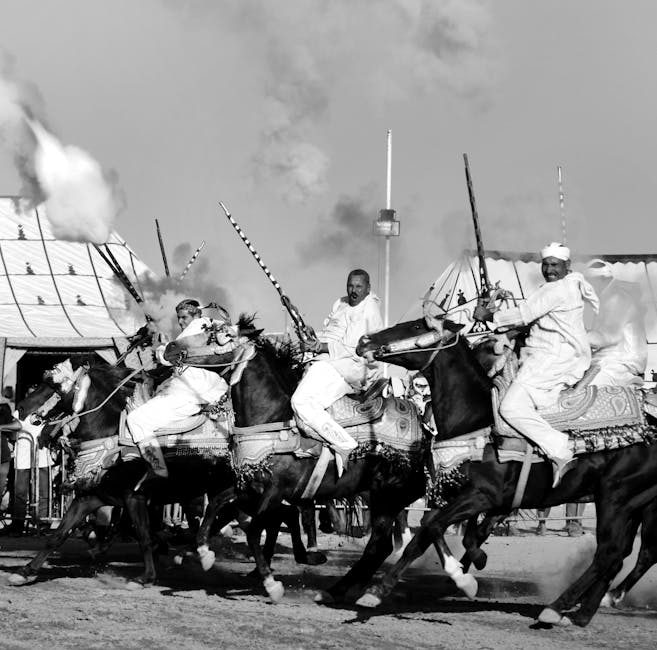Khosi Dlomo, a young equestrian from South Africa, isn’t your typical teenager. She’s not spending her days scrolling through social media or binge-watching TV shows. Instead, she’s on horseback, competing in the thrilling and challenging sport of tent pegging.
Picture this: Khosi atop her horse Yogi, galloping down a track with a lance in hand, eyes fixed on a small wooden peg lodged in the ground. With precision and skill, she aims to dislodge the peg in one swift motion—a task that requires intense focus and finesse.
“When you get a peg, it gives me an adrenaline rush,”
shares Khosi, highlighting the exhilaration that comes with hitting the target spot-on. In tent pegging, each successful attempt awards points based on the level of accuracy—six points for a clean removal, four for striking it out, and two for leaving a mark.
But tent pegging is more than just about hitting targets; it’s about teamwork between rider and horse. As Khosi explains,
“When you get on the horse, you need to know what your job is.”
This symbiotic relationship demands multitasking skills, exceptional horsemanship, and self-care abilities.
As the sole black female registered in sub-Saharan Africa’s tent pegging scene,
Khosi has not only excelled but also become an advocate for diversifying the sport.
Originally brought to South Africa by British cavalrymen during the Second Boer War in the early 1900s,
tent pegging boasts a rich history rooted in military traditions.
For Khosi Dlomo—a trailblazer challenging stereotypes—her journey into tent pegging began at a young age after attending a friend’s horse riding party.
“It was a horse riding party…and then I asked my mom ‘Can I start horse riding?'”
Despite initial concerns about safety—from both riding horses and handling weapons—Khosi’s family rallied behind her passion. Now 19 years old,
she reflects on how grateful she is for their unwavering support.
In South Africa, where tent pegging remains predominantly within white middle-class circles,
Khoi acknowledges the need for broader outreach to attract diverse participants.
The Cost Barrier:
Participation hurdles exist due to financial constraints associated with maintaining horses—an endeavor estimated at thousands of rand annually.
Diversifying Participation:
Khosi aspires to make tent pegging more accessible and inclusive by leveraging her platform as an athlete.
Reflecting on her experiences at international competitions like the World Championships held in Jordan,
“You don’t have a connection with this horse…you’re hanging off…trust this horse is stable.”
While facing challenges abroad,
“Help grow [the sport]…”
she remains steadfast in promoting its legacy back home.
At its core,Tent Pegging transcends gender disparities,“What I love about [it]…my capabilities as a rider…”
In this demanding yet equalizing sport,

